Journalist Kate Demolder writes about her personal experience with depression and anti-depressants.
Let me explain something about myself. When I was eight, I started having panic attacks, brought on by fears that I couldn't shake, each of them centered around the idea of me being 'bad’.
I’d never been bad before (I don’t really know what bad looks like, today) but my tiny, uninformed brain clung to the idea that bad was unloveable, and it could come for anyone; by way of saying the wrong thing, poor exam results, poor hygiene, forgetting permission slips, crass language, laziness, oversight or irresponsibility.
Mine was a routine that soothed me; never allowing human error. An exhausting routine of never allowing my mind to rest. I would spend hours, even days, worrying that I might drop a ball, or many balls, until my mind seemed to spin out of control.
I couldn’t stop fixating, I couldn’t calm down, and I couldn’t understand what was happening. This time was the nineties, and the turn of the millennium, when our language and comprehension of such topics were poor, no one had heard of therapy, and representation of minds under pressure in television and films bordered on absolute alienation.
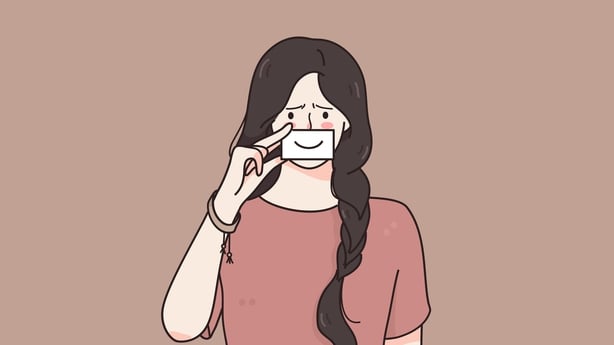
It was around the time I was studying for my final year college exams. This memory exists in black and white now––the colour either having bled away. or never having really existed in the first place.
My anxiety grew so great and large, that a roaring sound penetrated my ears and vomit filled my throat at the thought of moving. Worthlessness pounded like a church bell. My worlds began separating to the point of not knowing what was real and what wasn’t. At times, I’d take a ring off my finger to taste the metal and check if I was still there.
I finished my final exam on a Wednesday and called my GP the next morning. It had been a while since she’d seen me last. She’d remarked at my obvious exhaustion, tear-stained eyes, and slight-shouldered hunch, as if I were trying to minimise the extent of my symptoms by curling my body into itself.
That morning, I had considered not leaving bed at all, but her kindness and attention to detail made me glad I had. My smile, when she told me things would get better, felt pinched and dutiful. It was, as were her eyes. They stung, but my resolve to die faltered.
"What’s the matter?" She asks. I don’t feel I can say. By the end of the appointment, I was crying so hard that she placed me in the hands of my mother, like a dying lamb, telling her to take me home immediately, and that we can pay at a later date.
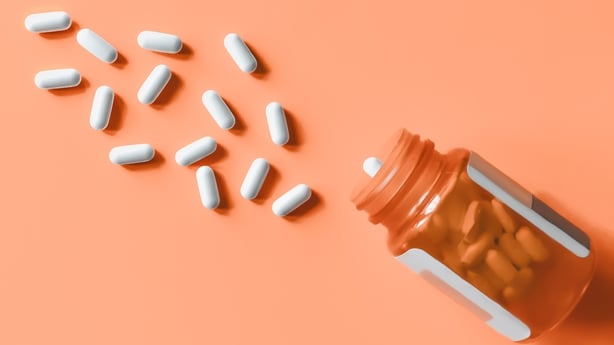
She prescribed me the first in a series of five Selective Serotonin Reuptake Inhibitors (SSRIs), widely used and prescribed antidepressants, which would lift me, flatten me, stop me crying, stop me laughing and finally, hit me at a place where I no longer wanted to die for more than a moment. My intention was never to raise the alarm or to shock. I just wanted to fall over, disappear, and that be it.
With each raised or changed dose, I felt thankful to have been heard.
I took them for nearly eight years, rising and falling by 5mg at times when my doctor and I thought it might help. Looking back, I was never sure whether any of the drugs actually lifted my mood—roughly a third of patients who take antidepressants do not respond to them—but my emotions felt less urgent and distracting, and because of this, life improved.
At social events, I moved as one with those around me, I ebbed and flowed with the grace of someone who could function, all the while shaking feelings of physical disconnection off like old boots.
Tears came, but they also went. As, at times, did laughter, joy and snippets of my personality. I, too, would fall into what research psychologists call "depression about depression," a fear that each moment of lethargy or disappointment (valid feelings which exist within the spectrum of human emotion) was the start of a black mood that would never end.
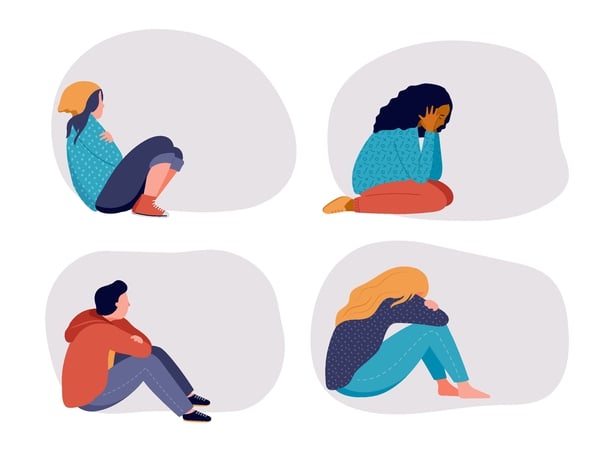
That was when I would schedule an appointment, telling them that I no longer felt like myself, and could we try something else. I hated those moments the most, feeling like the problem again and again. Like saying that I used to be good, but now I’m bad again. But this happens, they said.
"It’s a big deal," they told me, mercifully. "They alter your brain chemistry. You’re allowed to have a say in that."
If you were to meet me during this time, I would not have presented as a sick person. People rarely do. In my head, I was drowning, but on the outside, I was social, working, and able to smile when speaking.
I dressed to appear invisible, but also curated my life with the trappings of someone who was doing well. My weight fluctuated, triggering feelings that weren’t helpful, and I learned how to sleep again, though often felt ashamed to be doing so.
I tried on different versions of myself: extrovert; artistic; helpful; alluring; achieving; aloof; screaming; quiet. They each felt like they connected until they didn’t, dragging my own sense of self through gnarled bushes with the hope that the next one might stick.
This pattern lasted until around the pandemic, when my anxiety levels skyrocketed and my depression brought me to my knees. Weeks were spent either sleeping or crying, a series of symptoms that resulted in layers of prescribed medications in their highest doses.
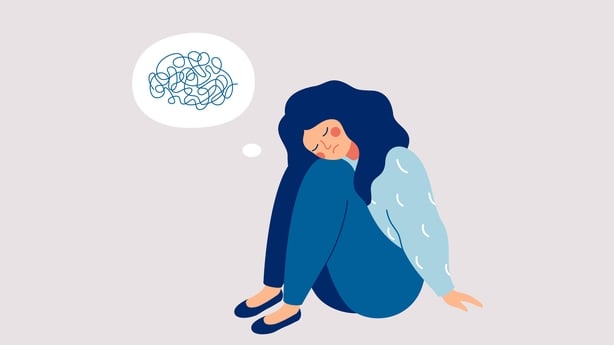
They numbed me, calmed me, soothed me, and provided a smooth path for all the time it was needed. During this time and before, the drugs saved my life. Many times, over and over again.
They too, however, horrified me––making me feel like less than everybody else. As the pandemic lessened, and I finally felt closer to myself again, I spoke to my doctor about decreasing my dose. I wasn’t sure if I could handle it, but it had been close to a decade since I’d made a decision without the help of medication, and I wanted to see if I still could. That was a year ago. And now I write this drug-free. For now, anyway.
I am writing this in week six (week six already! After eight years!) of withdrawal, arguably the most difficult month mentally I’ve had since 2015. The recognition of old patterns feels particularly cruel: convincing yourself that your closest friends despise you; grievous self-loathing to the point of nausea; and overstimulation at menial tasks.
An old and familiar feeling creeps in: 'Is this reality?'
I knew what I was feeling was by way of readjustment––but what if it wasn’t? This quelled at times, notably when I found others who felt the same. Finding the web forum Surviving Antidepressants, a community visited by hundreds of members a week, allowed me to cry and laugh and feel grounded for the first time in years.
Tears traversed my face when I read about the terms they’d invented to encapsulate how I was feeling: "neuro-emotion," an exaggerated feeling not grounded in reality; and "dystalgia," a wash of despair that one’s life has been futile. Tears continue as I return to the website today. The latest comment on the top of the list today about Prozac withdrawals simply reads. "Thank you for caring."
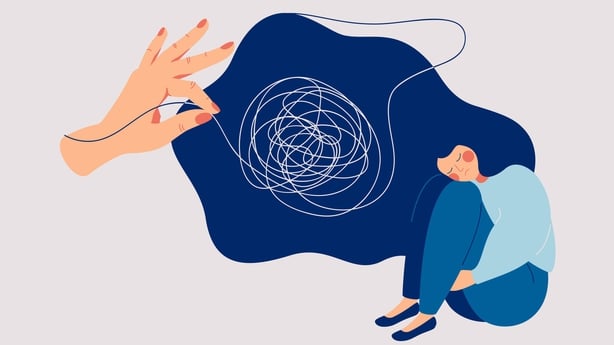
Working slowly and carefully with my doctor, it took me nearly a year to withdraw from medication, a process that coincided with burgeoning doubt. When I’d experienced symptoms of difference before, I would make a note and mention them at our next appointment.
Now, it felt like I didn’t have a clear path. Catering to the holes in my serotonin was, and is, the small group of friends around me, as well as myself, papering over holes and filling up cups.
Among the hardest part is the fact that had I come from a less forgiving or more judgemental family, I would never have been able to do this. Any of it. Others in my situation might have ended up in a very different position. This in turn maddened – me thinking of how inaccessible and unaffordable mental healthcare can be for those who need it most.
According to recent Irish Times research, across all age groups, there was a 35% rise in prescriptions for antidepressants between 2012 and 2022, rising from 2,817,201 to 3,828,149. I was one of those people, and I may still be again.
Up until very recently, it has been assumed by some that depression was caused by a precisely defined chemical imbalance, which medications were designed to recalibrate.
Now research says it’s a lot more complicated than that: genetics play a role in mental disorders, as do environmental influences, but, as I see it and have read it, the drugs do not have the specificity to target the causes of an illness.
That too, softened the blow. It was no longer my fault. It was never my fault. It will never be my fault.
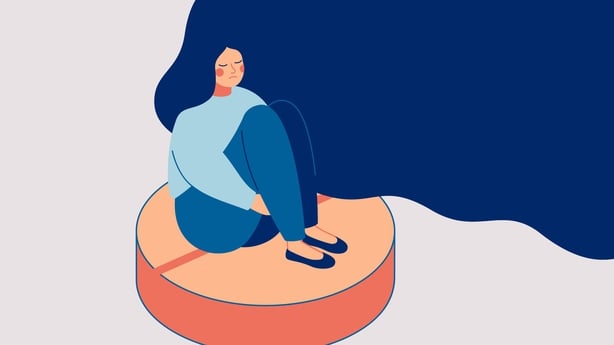
There are almost no studies on how or when to go off psychiatric medications, and furthermore, little understanding of how they work and what they do.
When Swiss psychiatrist Roland Kuhn invented one of the first antidepressants, Imipramine, in 1956, he was aware of this, later warning that many doctors would be incapable of using antidepressants properly, "because they largely or entirely neglect the patient's own experiences."
The drugs could only work, he wrote, if a doctor is "fully aware of the fact that he is not dealing with a self-contained, rigid object, but with an individual who is involved in constant movement and change."
Today, I feel as if I’m learning the contours of my adult self for the first time. When I feel something, I try to accept the sensation without questioning whether or not I’m cut out for this world. It feels less like unlearning, and more like peeling off painful layers that were once imposed.
I’m also gaining new understanding: the richness of desire (a loss of sexuality is among the most common symptoms of those on antidepressants, a symptom that feels more like a betrayal than a life raft); the appreciation of agency and the joy and relief of crying over beautiful things––something I’d never felt permitted to do.
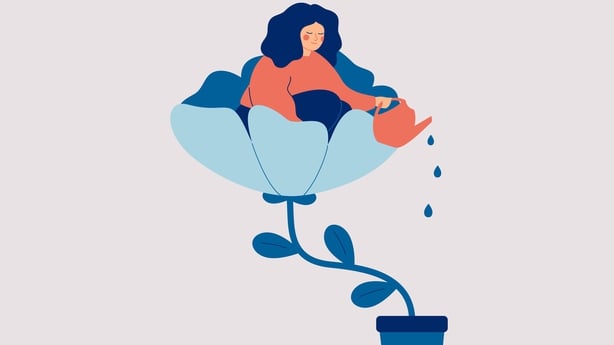
Desperation reigns, too. If someone, anyone, told me that one perfect thing could somehow make me feel level, I would do it. Sometimes that, in itself, is overwhelming––as if a tiny voice inside of me is constantly screaming: "Please, help me."
When I talk to people about this, the first thing they usually ask is if I’m okay. 'Okay' is a word so riddled with ambiguity that any answer would feel untrue. 'Okay' is how I covered my feelings.
Nothing about being okay is relevant to my process now. That said, perhaps we all want to be okay; okay enough to cover the worst parts of ourselves, to delegitimise the feelings that put us there.
My darkness is still there ("You don’t deserve to do this," my head is telling me as I write this. "Who cares about anything you’ve ever done? Shut up"), but now it lives alongside me, as opposed to encompassing my lot.
It may change and shapeshift, and I may go back on the drugs, but right now I am experiencing things I never thought I might experience. Like accepting love, realising hope, and feeling it all every step along the way.
The views expressed here are those of the author and do not represent or reflect the views of RTÉ.
If you have been affected by issues raised in this story, please visit: www.rte.ie/helplines.

